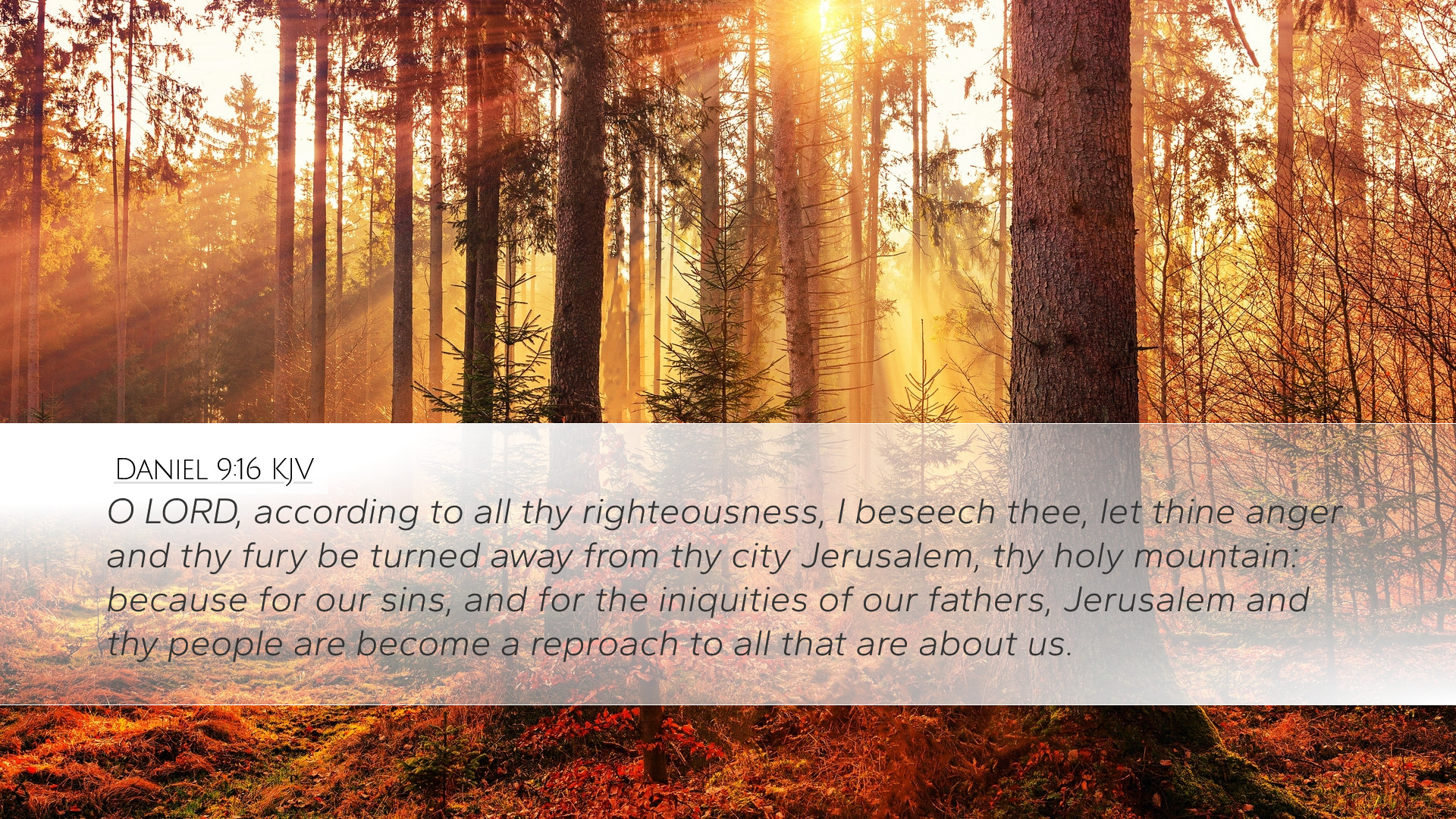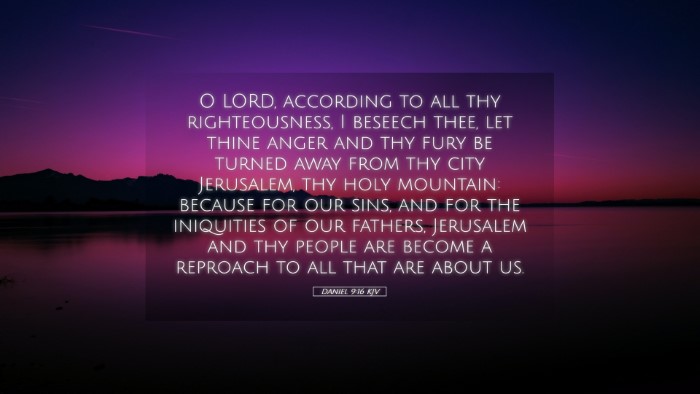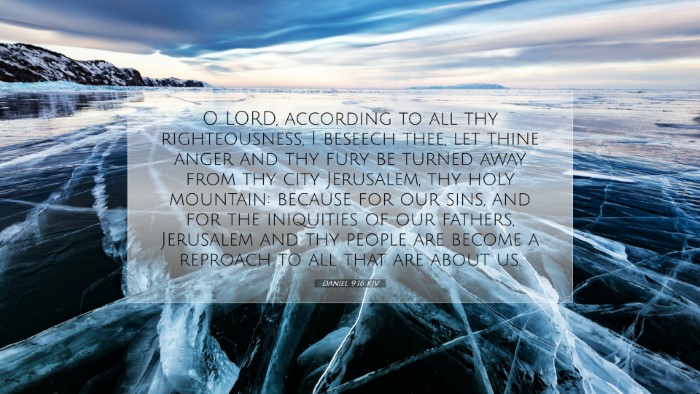Commentary on Daniel 9:16
Contextual Overview: Daniel 9:16 falls within a profound penitential prayer offered by Daniel, as he seeks God's mercy for Israel after acknowledging their sins and the dire consequences they faced due to divine judgment. This prayer illustrates Daniel's role as an intercessor, bringing before the Lord the plight of his people.
Text of Daniel 9:16 (KJV)
"O Lord, according to all thy righteousness, I beseech thee, let thine anger and thy fury be turned away from thy city Jerusalem, thy holy mountain: because for our sins, and for the iniquities of our fathers, Jerusalem and thy people are become a reproach to all that are about us."
Analysis by Commentators
Matthew Henry's Commentary
Matthew Henry emphasizes the depth of Daniel's humility and the seriousness of the sins confessed. He notes that the acknowledgment of divine righteousness is central in Daniel's plea. Henry observes that the city of Jerusalem, once a symbol of God's presence, has become "a reproach to all that are about us." It signifies how far the people have strayed from their covenant with God.
- Righteousness of God: Daniel appeals to God's righteousness, understanding that any plea for mercy must recognize God's justice and holiness.
- Penitence and Intercession: Daniel's prayer serves as a model for true repentance; it is not merely a cry for help, but an acknowledgment of wrongdoing and a desire for restoration.
Albert Barnes' Notes on the Bible
Albert Barnes highlights the significance of the terms “anger” and “fury” in this verse. He points out that these emotions are integral to God’s judgment yet also emphasizes His readiness to relent. Barnes interprets Daniel’s plea as an urgent request for God to restore His city, demonstrating a clear understanding of God’s character as both just and merciful.
- Restoration of Jerusalem: Barnes asserts that the desire for restoration is crucial; Jerusalem represents both a physical location and the spiritual heart of Israel’s relationship with God.
- Covenantal Relationship: The mention of “thy holy mountain” alludes to the covenantal promises God made with Israel, reinforcing the need for divine intervention given their unworthiness.
Adam Clarke's Commentary
Adam Clarke provides a thorough examination of Daniel’s context, highlighting that this prayer reflects a deep national repentance. Clarke points out the distinction between communal and individual sin, emphasizing that the prayer acknowledges the cumulative nature of sin within the nation.
- Corporate Repentance: Clarke indicates the necessity of recognizing that corporate sin affects not only the nation but also Israel’s standing before God.
- Impact of Sin: The phrase "become a reproach to all" demonstrates the public nature of their disgrace, suggesting that the sins of Israel had ramifications beyond their community, impacting their witness to surrounding nations.
Theological Implications
This verse is rich in theological implications. It speaks to the nature of sin and the necessity of repentance, the faithfulness of God to His promises, and the depth of communal relationships in the context of spiritual fidelity. Pastors and theologians can draw from this prayer to engage in discussions on the importance of collective accountability and the call to seek restoration from God.
Lessons for Today
- The Necessity of Prayer: Daniel's fervent intercession encourages believers to engage deeply in prayer on behalf of their communities.
- Recognition of God's Sovereignty: Understanding God’s righteousness and sovereignty empowers believers to approach Him with confidence in His mercy.
- Importance of Humility: The posture of humility in confession is crucial for reconciliation with God, an important lesson for personal and communal spiritual health.
Conclusion
Daniel 9:16 serves not only as a historical account of Daniel's prayer but also as a template for understanding the relationship between sin, repentance, and divine mercy. Through the insights of Matthew Henry, Albert Barnes, and Adam Clarke, readers are encouraged to reflect on their own spiritual lives and the collective responsibility of the Church to seek God's face in humility and repentance.


